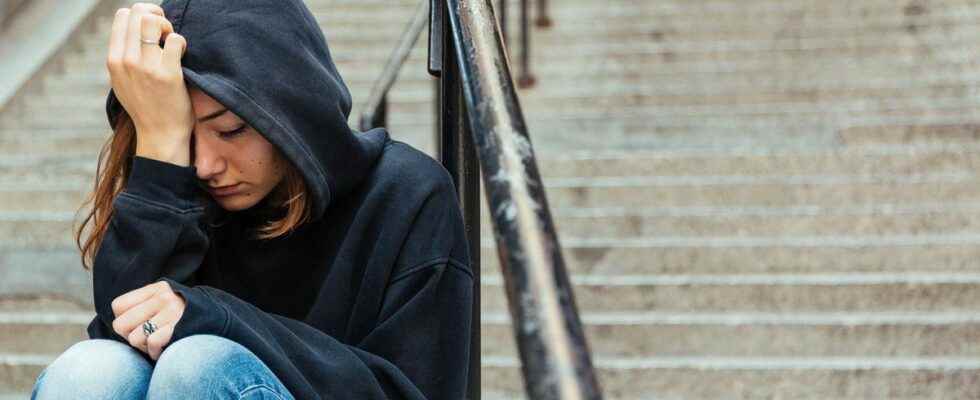Published on
Updated
Reading 2 mins.
For the second consecutive year, the Ipsos Institute has published its barometer on the mental health of adolescents aged 11 to 15, reporting that more than one in two is in psychological distress. This is 10 points more than last year.
Affected by the health crisis, the state of the world or even eco-anxiety, the mental health of our teenagers is declining. And this is not just an impression or a mood swing. According to a new Ipsos study for Our future, one out of two French teenagers is currently in a state of psychological suffering, with 53% having symptoms of anxiety and 48% having symptoms of depression. 31% of them are even suspected of generalized anxiety disorder. Worse still, 17% of adolescents in 2022 would feel overwhelmed by suicidal thoughts compared to 10% in 2021. A phenomenon that concerns girls as much as boys, but which, “for the first time, affects more strongly adolescents from more privileged social categories.“
School and current affairs as sources of anxiety among young people
Asked about the causes of their unhappiness, the teenagers evoke above all the school and the grading system in the first place. Thus, 63% of young people would be “very anxious when they have questions or when we give them notes” and 37% even “very afraid of some teachers“. The news is also anxiety-provoking for them: eco-anxiety affects one out of two teenagers, but the geopolitical situation (war in Ukraine, etc.) also now ranks third among the subjects that worry them on a daily basis, after violence against children (for 50%) and the state of the planet (for 47%).Finally, 31% of teenagers also answered that they were confronted with a situation of cyberviolence on social networks or by SMS. if the health crisis could accentuate the anxiety of the youngest at the end of the confinement periods in 2020 and 2021, it cannot explain the deterioration in the psychological state of adolescents this year.
Recognize the bad being, a first step to get better
Despite an already alarming observation, another problem lies in these figures: they would be, according to Ipsos, below reality. Indeed, adolescents would also find it difficult to recognize their state of anxiety themselves, in fact only 6% of respondents say they are not well. Faced with this malaise, the survey also reveals that one in four teenagers would not know to whom to confide their feelings. And one in two believe that their problems are not serious enough to be mentioned.
What, no doubt, to take a closer look at these teenagers who sometimes (often) sulk. With good reason, it seems.
